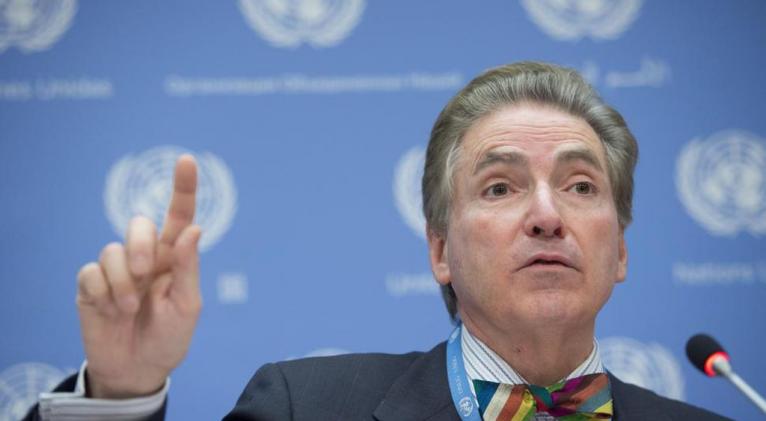Disarmament for development is a 'win-win' for States, people – UN rights expert
especiales

Alfred de Zayas, the UN Independent Expert on the promotion of a democratic and equitable international order calls for shifting some funds from military expenditures into education, health care, the creation of employment in peaceful industries, strengthening of the rule of law and administration of justice, among others.
He called disarming for development “a win-win strategy for States and Peoples,” according to the Office of the High Commissioner for Human Rights (OHCHR). It would also help to enable the realization of the right to development, and the post-2015 development agenda which the international community is currently discussing.
“It is time to reduce the spiral of military expenditures and to invest in research into the root causes of conflicts and in the development of strategies of conflict-prevention and resolution,” Mr. de Zayas said.
“The cost in human lives of every armed conflict is staggering, but the economic cost of wars can continue for generations,” he added in his third full-length report to the Human Rights Council in Geneva.
Military expenditures can consume up to 40 per cent of national budgets, according to World Bank figures.
A key problem, according to Mr. de Zayas, is the consistent under-reporting of governmental expenditures, which are often media taboos or treated as national security secrets, and the international ramifications of militarization.
“Even a cursory review of the situation worldwide reveals that, in many countries, accurate and understandable information on military expenditures is not available. In some countries, military activities are concealed by placing them under different rubrics such as energy, research or homeland security,” the Independent Expert said.
He called for public participation in decision-making, which requires full information, transparency and accountability, is essential to the democratic order.
“Parliaments have a special responsibility to oversee the adoption of national budgets and to monitor the actual use of appropriations so as to ferret out corruption,” he stressed.
The continued research into new weapons that may be used to deter, threaten, attack and occupy adversaries is particularly shocking, Mr. de Zayas said. These include lethal autonomous weapon systems, killer robots, radiological weapons, unmanned combat aerial weapons and cluster munitions.
“Excessive military expenditures have their own logic and their own dynamic. The profit-driven character of the armaments industry may well undermine the otherwise legitimate aim of protecting the population from outside threats,” he said.
Independent experts are appointed by the UN Human Rights Council to examine and report back on a country situation or a specific human rights theme. The positions are honorary and the experts are not UN staff, nor are they paid for their work.













Add new comment